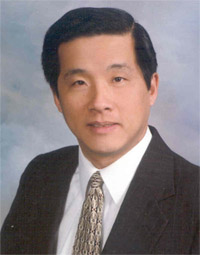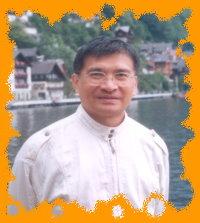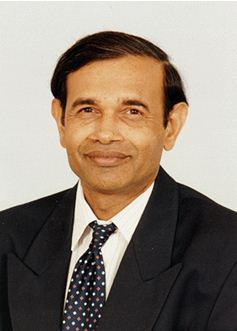POPULATION CONTROL IN EOLUTIONARY MULTIOBJECTIVE OPTIMIZATION ALGORITHM
Professor Gary G. Yen, Ph.D., IEEE Fellow
Oklahoma State University
 |
BiographyGary G. Yen received the Ph.D. degree in electrical and computer engineering from the University of Notre Dame, Notre Dame, Indiana in 1992. He is currently a Professor in the School of Electrical and Computer Engineering, Oklahoma State University. Before he joined OSU in 1997, he was with the Structure Control Division, U.S. Air Force Research Laboratory in Albuquerque, NM. His research is supported by the DoD, DoE, EPA, NASA, NSF, and Process Industry. His research interest includes intelligent control, computational intelligence, evolutionary multiobjective optimization, conditional health monitoring, signal processing and their industrial/defense applications. |
Gary was an associate editor of the IEEE Transactions on Neural Networks and IEEE Control Systems Magazine during 1994-1999, and of the IEEE Transactions on Control Systems Technology, IEEE Transactions on Systems, Man and Cybernetics and IFAC Journal on Automatica and Mechatronics. He is currently serving as an associate editor for the IEEE Transactions on Evolutionary Computation. He served as the General Chair for the 2003 IEEE International Symposium on Intelligent Control held in Houston, TX and 2006 IEEE World Congress on Computational Intelligence held in Vancouver, Canada. Gary served as Vice President for the Technical Activities, IEEE Computational Intelligence Society in 2004-2005 and is the founding editor-in-chief of the IEEE Computational Intelligence Magazine from 2006 to 2009. He is currently serving as President of the IEEE Computational Intelligence Society in 2010-2011. He is a Fellow of IEEE. Abstract Evolutionary computation is the study of biologically motivated computational paradigms which exert novel ideas and inspiration from natural evolution and adaptation. The application of population-based heuristics in solving Multiobjective Optimization Problems has been receiving a growing interest from computational intelligence community. To search for a family of “acceptable” solutions, a so called Pareto set, by using population-based parallel searching ability, several MultiObjective Evolutionary Algorithms (MOEAs) and MultiObjective Particle Swarm Optimization (MOPSOs) have been proposed. However, most of these designs have difficulty in dealing with the trade-off between uniformly distributing the computational resources and finding the near-complete and near-optimal Pareto set. On the other hand, according to the No Free Lunch theorems, no formal assurance of an algorithm’s general effectiveness exists if insufficient knowledge of the problem characteristics is incorporated into the algorithm domain. In this talk, population control is being implemented in various forms of evolutionary algorithms for the purpose of multiobjective optimization, including genetic algorithm, particle swarm optimization, differential evolution and artificial immune system. We will propose works along this line of research in dynamically regulating the population as needed in different stage of evolutionary process, some voluntary while others compulsory, in pursuing a uniformly distributed, near optimal, and close to complete Pareto front for a given MOP. Through numerical study, we will show these designs incorporating population control strategy provide very competitive performances qualitatively and quantitatively compared to some chosen state-of-the-art evolutionary algorithms. |
|
APPLYING DE-CLUSTERING CONCEPT TO INFORMATION HIDING
Professor Chin-Chen Chang, Ph.D, IEEE Fellow, IET(IEE) Fellow
Feng Chia University, Taiwan
 |
BiographyProfessor Chin-Chen Chang was born in Taichung, Taiwan on Nov. 12th, 1954. He obtained his Ph.D. degree in computer engineering from National Chiao Tung University. He's first degree is Bachelor of Science in Applied Mathematics and master degree is Master of Science in computer and decision sciences. Both were awarded in National Tsing Hua University. Dr. Chang served in National Chung Cheng University from 1989 to 2005. His current title is Chair Professor in Department of Information Engineering and Computer Science, Feng Chia University, from Feb. 2005. |
Prior to joining Feng Chia University, Professor Chang was an associate professor in Chiao Tung University, professor in National Chung Hsing University, chair professor in National Chung Cheng University. He had also been Visiting Researcher and Visiting Scientist to Tokyo University and Kyoto University, Japan. During his service in Chung Cheng, Professor Chang served as Chairman of the Institute of Computer Science and Information Engineering, Dean of College of Engineering, Provost and then Acting President of Chung Cheng University and Director of Advisory Office in Ministry of Education, Taiwan. Professor Chang's specialties include, but not limited to, data engineering, database systems, computer cryptography and information security. A researcher of acclaimed and distinguished services and contributions to his country and advancing human knowledge in the field of information science, Professor Chang has won many research awards and honorary positions by and in prestigious organizations both nationally and internationally. He is currently a Fellow of IEEE and a Fellow of IEE, UK. And since his early years of career development, he consecutively won Outstanding Youth Award of Taiwan., Outstanding Talent in Information Sciences of Taiwan., AceR Dragon Award of the Ten Most Outstanding Talents, Outstanding Scholar Award of Taiwan., Outstanding Engineering Professor Award of Taiwan, Chung-Shan Academic Publication Awards, Distinguished Research Awards of National Science Council of Taiwan, Outstanding Scholarly Contribution Award of the International Institute for Advanced Studies in Systems Research and Cybernetics, Top Fifteen Scholars in Systems and Software Engineering of the Journal of Systems and Software, and so on. On numerous occasions, he was invited to serve as Visiting Professor, Chair Professor, Honorary Professor, Honorary Director, Honorary Chairman, Distinguished Alumnus, Distinguished Researcher, Research Fellow by universities and research institutes. He also published more than one thousand papers in Information Sciences. In the meantime, he participates actively in international academic organizations and performs advisory work to government agencies and academic organizations. Abstract Reversible information allows an original image to be completely restored after the extraction of hidden data embedded in a cover image. In this talk, I will introduce a reversible scheme for VQ-compressed images that is based on a declustering strategy and takes advantage of the local spatial characteristics of the image. The main advantages of the method are ease of implementation, low computational demands, and no requirement for auxiliary data. The experimental results show that the embedding capacity of the proposed method is controlled by the number of declustered groups and the spatial characteristics of the cover image. The results also show that the proposed method is indeed feasible because it has large embedding capacity and short running time compared with other methods. |
|
Cognitive Radio Networks and Its Applications
Professor Qinyu Zhang, Ph.D, Shenzhen Graduate School,
Harbin Institute of Technology, China
 |
BiographyQinyu ZHANG, was born in 1972 in Jiang Su, P.R.China. After undergraduate studies at Harbin Institute of Technology, he received his PhD in 1999 from the University of Tokushima, Japan. From 1999 to 2003, he was with the assistant professor at the University of Tokushima, Japan. Since 2005, he has been professor of the Dept. of Electronic and Information Engineering at the Shenzhen Graduate School, Harbin Institute of Technology. |
His research interests include wireless communications, cognitive radio, signal processing and biomedical engineering. He is now leading the research group awarded a couple of national research founding, NSFC, 863, 973. He published more than 100 reviewed papers on the related research fields. He awarded ‘Chinese New Century Excellent Talents in University’, and now he is the chair of IEEE Communication Society Shenzhen Chapter. Abstract Cognitive Radio Networks (CRN) technology is an important innovation for the future of communications and likely to be a part of the new wireless standards, becoming almost a necessity for future communications. Due to the flexibility and openness of CRN, it is easy to link CRN to some new techniques and theories. For instance, cooperative spectrum sensing in cognitive radio networks has an analogy to a distributed decision in wireless sensor networks, where each sensor makes a local decision and those decision results are reported to a fusion center to give a final decision according to some fusion rule. The main difference between these two applications lies in the wireless environment. Compared to wireless sensor networks, cognitive radios and the fusion center (or common receiver) are distributed over a larger geographic area. This difference brings out a much more challenging problem to cooperative spectrum sensing because sensing channels (from the primary user to cognitive radios) and reporting channels (from cognitive radios to the fusion center or common receiver) are normally subject to fading or heavy shadowing. In addition, to pursuit advanced intelligent capability and adaptive capacity in any environment at any time, CRN necessiate more inter-behavior as well as stronger calculation ability. Global information grid (GIG) , cloud computing, cooperative distributed planning, which are all dovetailed nicely with the nature of CRN actions, will be helpful and can enable CRN to be more practical and exercisable. Keywords: CRN, intelligent networks, distributed computing, cloud computing |
|
Intelligent System Design in Security
Lakhmi C. Jain,
PhD, ME, BE(Hons), Fellow Engineers Australia
Professor of Knowledge-Based Engineering,
School of Electrical and Information Engineering,
University of South Australia
 |
BiographyProfessor Lakhmi Jain is a Director/Founder of the Knowledge-Based Intelligent Engineering Systems Centre. His interests focus on the novel techniques such as knowledge-based intelligent machines, virtual systems, intelligent agents, and the application of these techniques in areas such as engineering, science, aviation, healthcare, defence and so on. He can be reached at: Adelaide, |
Abstract: The Knowledge-Based Intelligent Engineering Systems Centre (KES) is focused on modelling, analysis and design in the areas of Intelligent Information Systems, Physiological Sciences Systems, Electronic commerce and Service Engineering. The centre is working on research projects related to security. This talk will summarize the research projects undertaken by the centre in recent years. An overview of an automated decision support system for landmine detection will be presented. The progress made in developing the intelligent flight data monitoring system for improving the safety of aviation operations will be presented. Keywords: CRN, intelligent networks, distributed computing, cloud computing |
|